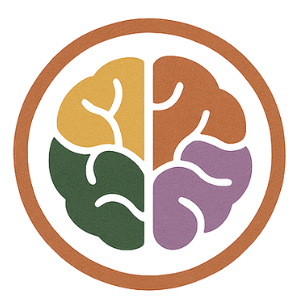Masking, Code-Switching, and IFS: Presenting Based on Context
“And I will take you by the hand / And show you what I see and understand.”
Masking.
It's a familiar and often dreaded part of our routine as neurodivergent people. It's a response, both to how others might perceive our “otherness" and to our own "disruptive” emotions. We hide away things about ourselves to make us more presentable to neurotypical people and their perceptions of how others should act.
Code-switching.
A tool used mainly (but not always) by marginalized groups to avoid standing out or being stereotyped. They change or hide their identity to fit into a larger collective. This includes changing language use, mannerisms, and/or behaviors. Sound familiar?
For neurodivergent people, it can be hard to tell when these concepts are separate, if they are at all! (I wouldn't know, I'm not a psychologist specializing in this.) That, however, means this is a uniquely snarled mess, one that we cannot cut ourselves out of with how our society works as of today. Whether it's to make ourselves more likable or to learn more about others, we change depending on the situation—on the people around us.
Today, I'm going to talk about Internal Family Systems (IFS), and how it's made everything make sense in my head. A quick disclaimer: I'm told I have a very well developed internal family system, so my experiences may be extreme compared to others.
So what is IFS? It's a model of psychotherapy that views a person as one central core (Self) with parts that act as lenses that we see through. It's actually the school of psychology that Inside Out was modeled after! The easiest way I can explain it is using that movie: you know the emotions? Imagine you could hear what they were saying, and you could talk to them. That's what it feels like as someone with a well developed internal family system.
How is this, while certainly interesting if you're into psychology, related to neurodivergence? Well it's simple. My parts help me mask and get through the day. They are what interact with my interests and hyperfixations, they're the ones that get excited. Self is calm and compassionate, but rarely emoting alone.
Think of them as lenses, these parts. Especially when it comes to masking or code-switching. They take you—all-encompassing and infinitely complex you—and filter it into little glimmers that we think appeal to those around us. It's still you, you aren't being fake or lying to them, you're picking and choosing what to show out of respect, safety, and/or context. That isn't bad, or evil, or manipulative, or any other negative thing. It's how we live and breathe in this world.
The main problem with masking and code-switching is when it harms us in turn. When we push past our limits to go that extra mile, to satisfy that extra person. (See Tehnyat’s post about masking for more examples). It takes a while to learn the balance, to give yourself grace and let more of yourself show.
I'm reminded of this most with Collette. She is my main masking part, and while she is a bundle of anxiety, she is still a well loved part of me. (She is also a shutdown part, but that's in emergencies.) She works in tandem with Yocod and Guardian. The former is a fountain of simmering anger ready for anyone who harms us, and the latter is a gentle giant who always has our best interests in mind. Together they help us—me?—blend in while holding my boundaries and not pushing myself too far. Yocod points out when someone is breaking boundaries, Guardian suggests what to do to keep myself safe, and Collette does what she can to keep everything calm while voicing concerns. They're only a few of my parts, but they work wonderfully together to keep me safe and sane.
But, in the end, that's just my own experience as someone with a complex psyche affected by AuDHD and C-PTSD. You may think this is all garbage, or insane, or even relatable. And that's okay. We as humans do some crazy things to make sense of the society we've made for ourselves. We mask, we code-switch, we create parts to deal with the microtraumas that come with living in a system that's against us. And, at the risk of sounding too hippie, we should be kind to all others, regardless of their circumstances.
It's one of the wonderful things that neurodivergence teaches us: compassion.
Come as you are, take what you need. I’ll be here.
